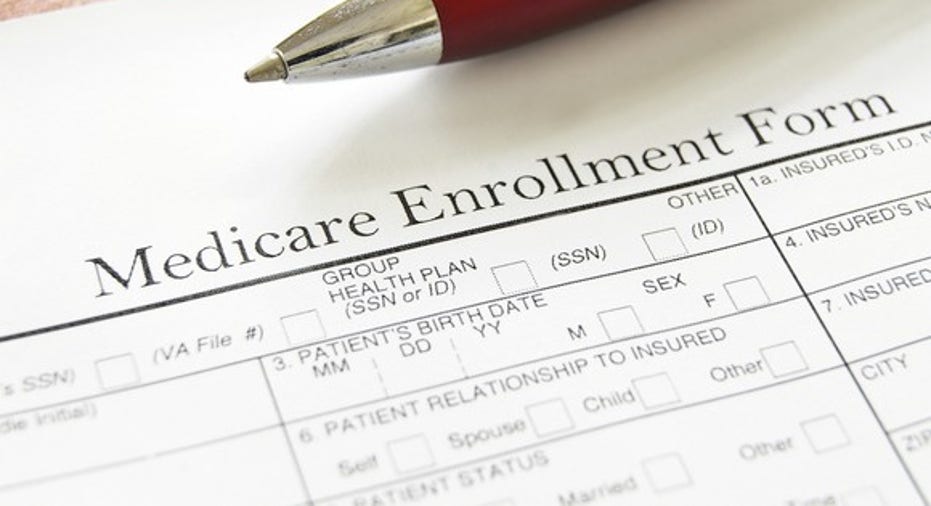How Would Bernie Sanders Change Medicare?

Whether you're a fan of Bernie Sanders or not, you've got to hand it to the guy: He's serious about healthcare reform. In fact, Sanders has big plans for Medicare. Whether they're feasible or realistic may be a different story.
IMAGE SOURCE: GETTY Images.
Medicare for All
At the core of Sanders' campaign is the notion that everyone should have access to universal healthcare. As such, he's pushing his "Medicare for All" plan. Currently, Medicare is only available to qualified individuals age 65 and over, as well as those with certain disabilities and severe medical conditions. Under Sanders' proposal, Medicare would be made available to all Americans. As a bonus, the plan is designed to cost more than $6 trillion less than the current system over the next 10 years.
What the plan will entail
Sanders' plan would essentially create a federally administered, single-payer healthcare program. (A single-payer system is one where a single agency or funding source arranges healthcare financing, as opposed to private agencies.) Coverage under Sanders' proposal will be truly comprehensive and run the gamut from preventative to emergency care. The idea is that patients will have the option to choose providers without having to worry about whether they're in-network, or how much it will cost to use their services. In fact, under Sanders' plan, copays and deductibles will be eliminated.
So who's going to pay for it?
While Medicare for All may seem nice in theory, someone's going to need to pay for it. To that end, Sanders is proposing a 6.2% income-based healthcare premium to be paid by employers to raise an estimated $630 billion per year. He's also proposing a 2.2% income-based premium to be paid by individual American households to raise an added $210 billion per year. According to Sanders, this year, a family of four taking the standard deduction and earning less than $28,800 per year would be exempt from this tax, while a family of four making $50,000 a year taking the standard deduction would pay an estimated $466.
Additionally, much to the chagrin of the wealthy, Sanders is also looking to implement progressive income taxes to help pay for the program. His proposal would generate an estimated $110 billion a year. Under Sanders' plan, the marginal tax rate would be:
- 37% on income between $250,000 and $500,000
- 43% on income between $500,000 and $2 million
- 48% on income between $2 million and $10 million
- 52% on income above $10 million
Furthermore, under Sanders' plan, households earning over $250,000 per year will no longer be able to save more than $0.28 in taxes from every dollar in tax deductions. Limiting deductions for higher earners will raise an anticipated $15 billion per year. Not only that, but Sanders hopes to raise $21 billion per year by imposing a progressive rate estate tax on those who inherit over $3.5 million.
Sanders is also seeking to tax capital gains and dividends as ordinary income. Right now, the majority of taxpayers pay a lower rate for long-term capital gains and qualified dividends. By imposing a higher tax on investment gains and proceeds, Sanders anticipates raising an extra $92 billion per year.
Finally, Sanders expects to harvest some savings from health tax expenditures. Specifically, certain tax breaks that subsidize healthcare would go away under his program, saving an estimated $310 billion per year.
A mix of pros and cons
The most clear-cut advantage of Sanders' plan is that it puts all eligible enrollees on level ground. No longer would Americans' health coverage be tied to their jobs. Rather, all Americans would have the right to adequate healthcare, regardless of income or employment status. Furthermore, under Sanders' plan, major players in the medical industry might be forced to lower their prices, as dealing with a single player (the federal government) might limit Big Pharma and other providers' ability to negotiate.
Of course, many are opposed to Sanders' proposal because they feel it places an undue burden on the rich. Furthermore, if companies are burdened with an additional 6.2% tax rate, they might take it out on employees by cutting wages or other benefits. Sanders' 2.2% income-based premium might also hurt Americans who fall into that dreaded upper middle class.
Finally, Sanders' plan relies heavily on paying providers lower rates, but whether they'll actually be willing to accept such cuts is a major question that's yet to be answered. Furthermore, Sanders might have a hard time keeping healthcare spending down when millions of Americans suddenly gain insurance.
Clearly, if elected, Bernie Sanders will attempt to push Medicare as we know it today through a major overhaul. Whether that's a good thing is yet to be determined.
The article How Would Bernie Sanders Change Medicare? originally appeared on Fool.com.
Try any of our Foolish newsletter services free for 30 days. We Fools may not all hold the same opinions, but we all believe that considering a diverse range of insights makes us better investors. The Motley Fool has a disclosure policy.
Copyright 1995 - 2016 The Motley Fool, LLC. All rights reserved. The Motley Fool has a disclosure policy.



















